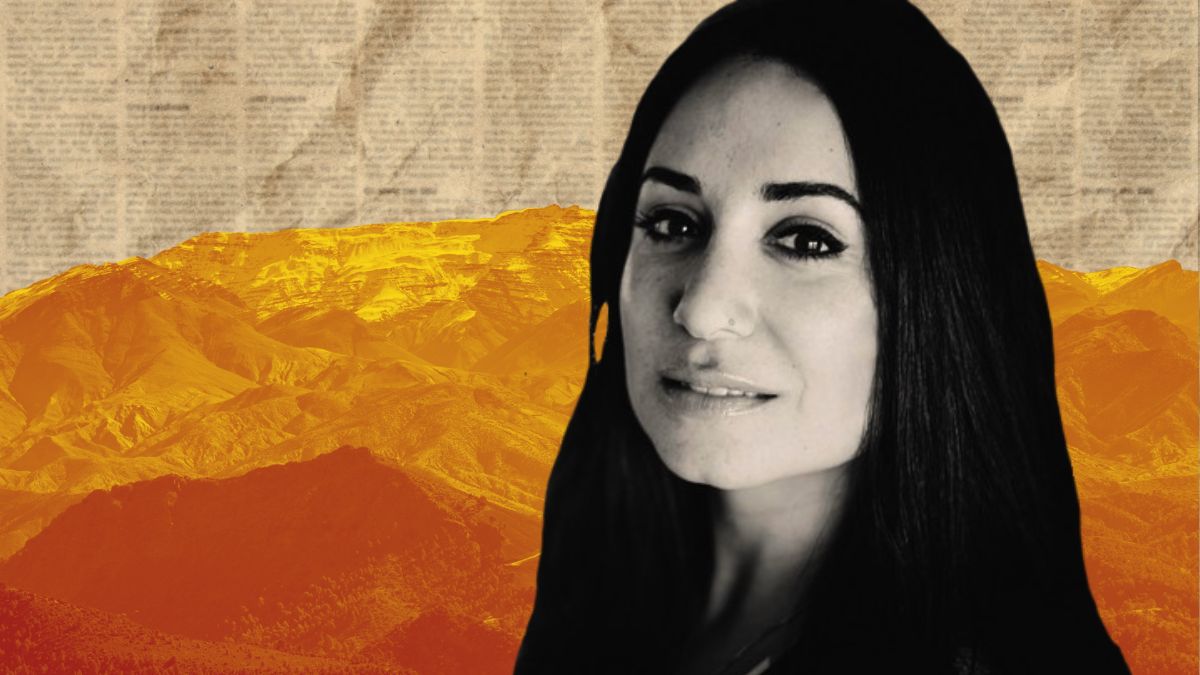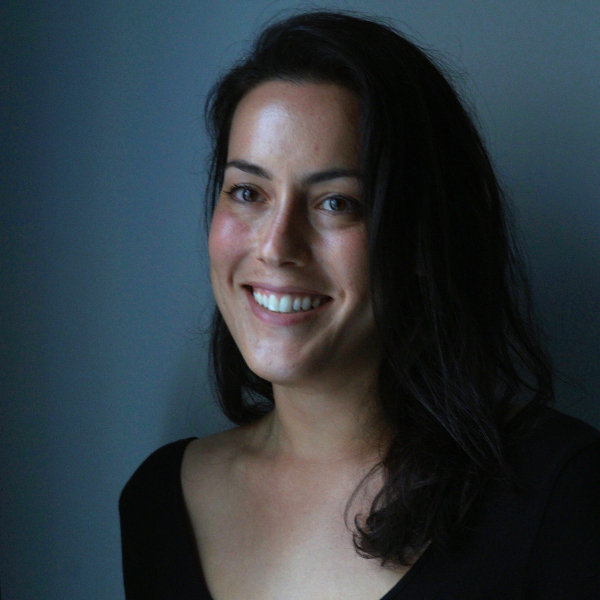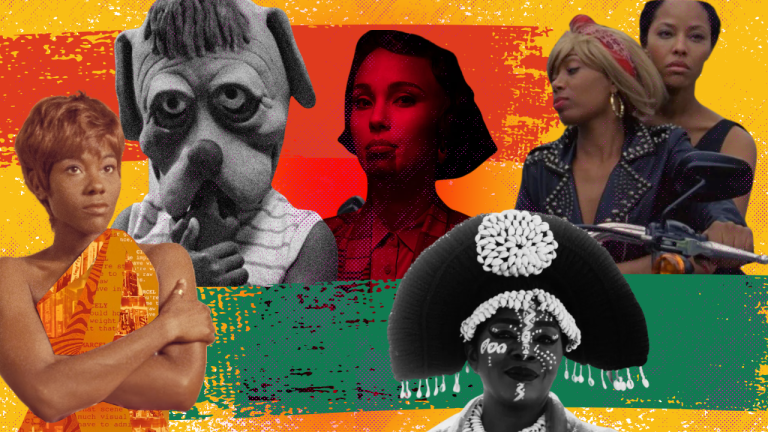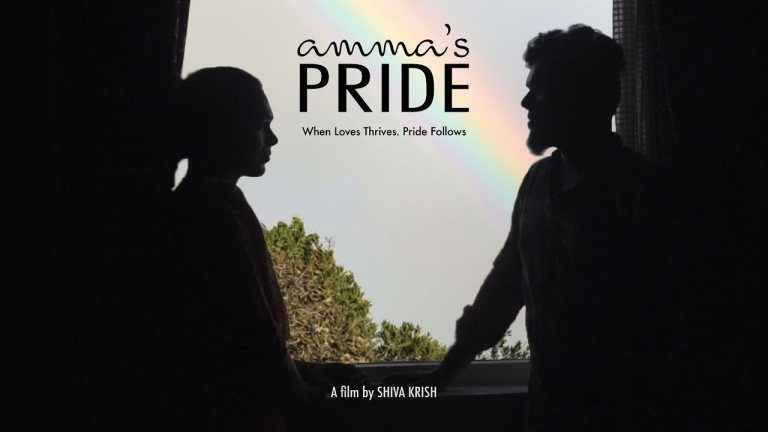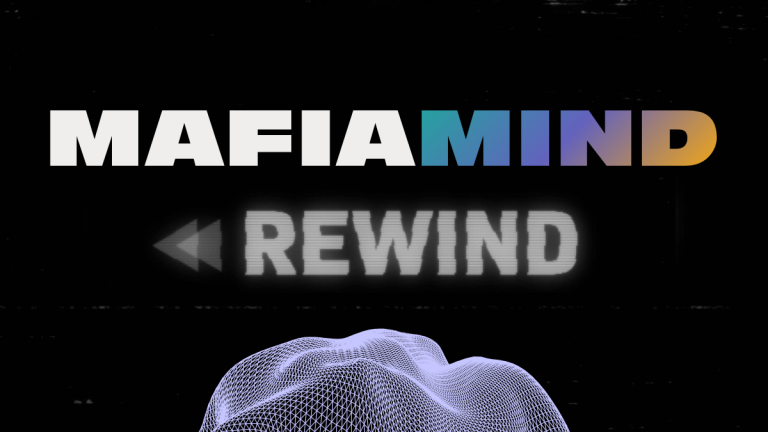
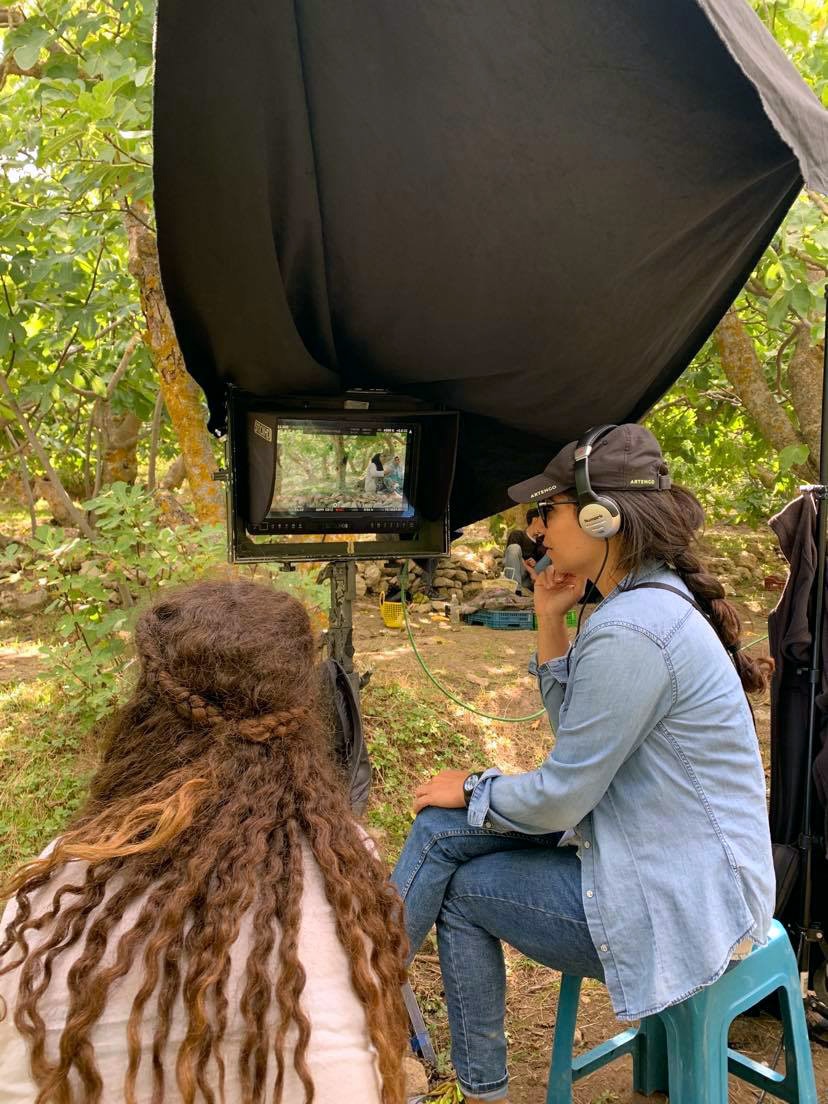
What was really surprising and moving to me was the uprising in Tunis because I didn't quite understand what a dictatorship was...I was not deeply aware of what it means — in people's psychology, in the family, in all the lies.
Erige: I grew up in France and I moved to Tunisia during the uprising — so 11 years ago now.
Leila: What made you want to return to Tunisia at that time?
Erige: The uprising, my father and a documentary. I was actually based in Jerusalem during the uprising. I was a journalist at that time. I felt that it [was] not quite news that I was interested in, but more documentary, telling story — even cinema. So I started to write a project called My Father's Facebook. It was about the addiction of my father [to] social media during the Tunisian protests. I sent it to a producer and at that time, they were actually preparing a collective documentary called Family Albums. The idea was to make short films that would be a collective film about heritage and identity in the Arab world.
Leila: It's interesting because I feel like journalism is a good introduction [to filmmaking] — it was the same for me. I worked in a newsroom and it wasn't my path. I wanted to always do long-form, but I learned so much from being around people who are so worldly. It gives you a very good skill set.
Erige: It's a good entrance — if you don't come from this industry, or you don't have people around you, or you didn't go to cinema school, which was my case — it's like, how do you start? So journalism is a really good entrance and documentary filmmaking is definitely the best school for me for filmmaking because there's no specific format for it. It's always very inventive and creative, and there's the human being aspect. Before, I thought that fiction [was] inaccessible, but actually, there's nothing more difficult than doing a proper inventive, creative documentary.
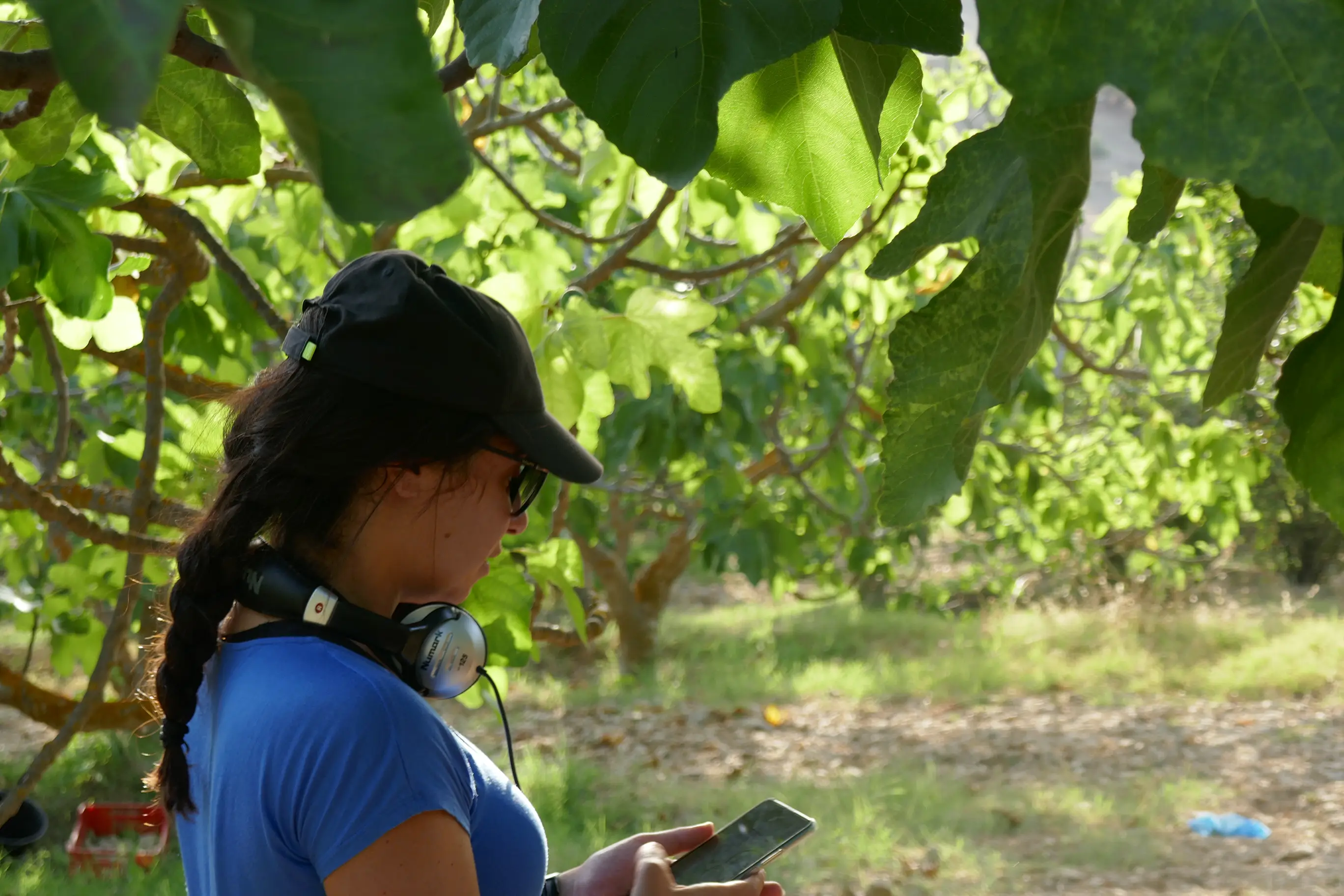
Leila: I agree with that. It's interesting because I think a lot of my friends started off in journalism. We all started transitioning into long-form documentaries and then so many of them, their real desire was to do fiction, and it just kind of molded that way. But I think documentary is difficult because you are collaborating with people who have a life outside of just filming with you. I think it's a natural progression.
Erige: I remember this is how I also learned to make films — not necessarily the classical way, but the way to find my own voice and vision. And of course, journalism will always be there because it's how I started and I cannot suddenly take it away from my experience, despite my experience. But I heard a lot of people telling me, “This is not cinema, this is journalism,” or “Your way of writing is too journalistic,” or things like that — in a bad way.
Leila: But I think it gives you such great tools that I think are super helpful in the long run, honestly.
Erige: Definitely. It also gives you a very political mindset, I think, which is also important for your metaphors or what you are telling in your story — even if it's a love story. It gives you another level of thinking and writing, [and] being really aware of society — and for me it's important.
Leila: When you did Family Albums can you tell me a little bit about what you were exploring?
Erige: That was more related to my relationship with my father and the country — and also the fact that I'm asking him in the film, “When are you going back to France to our family?” It was very strange to say that to someone who left his country at 15 years old. So it was about transmission and discussion and dialogue that we've never had before. Also, I've learned things about him, even though I used to come on vacation in Tunisia. I didn't know that his childhood was so hard…but everyone has an individual story. Even [though] it was my father, I felt like I didn't know that story. The short film was a way to go through that and make it relevant to so many migrant families. Actually, this led to Under the Fig Trees ten years later, [which] was shot in his village, with his accent and dialect, where I could explore what it means for different generations to live in the countryside of Tunisia.
Leila: When you were growing up in France, did you feel connected to Tunisia?
Erige: I used to speak [the] Tunisian dialect in the house, so we were very connected. We would come every summer. But what was really surprising and moving to me was the uprising in Tunis because I didn't quite understand what a dictatorship was. I didn't know that because I used to come on vacation. I just knew we don't talk about politics. I heard the sentence a lot: “Walls have ears.”
Leila: Yeah, I had a household where you don't say certain things on the phone. You don't talk about certain things.
Erige: It was like that too. But I was not deeply aware of what it means — in people's psychology, in the family, in all the lies. So it was a shock to discover what dictatorship means, and all of that was really, really, really hard to discover. When I went back to my father's village at that time, I didn't see the village or the people the same way.
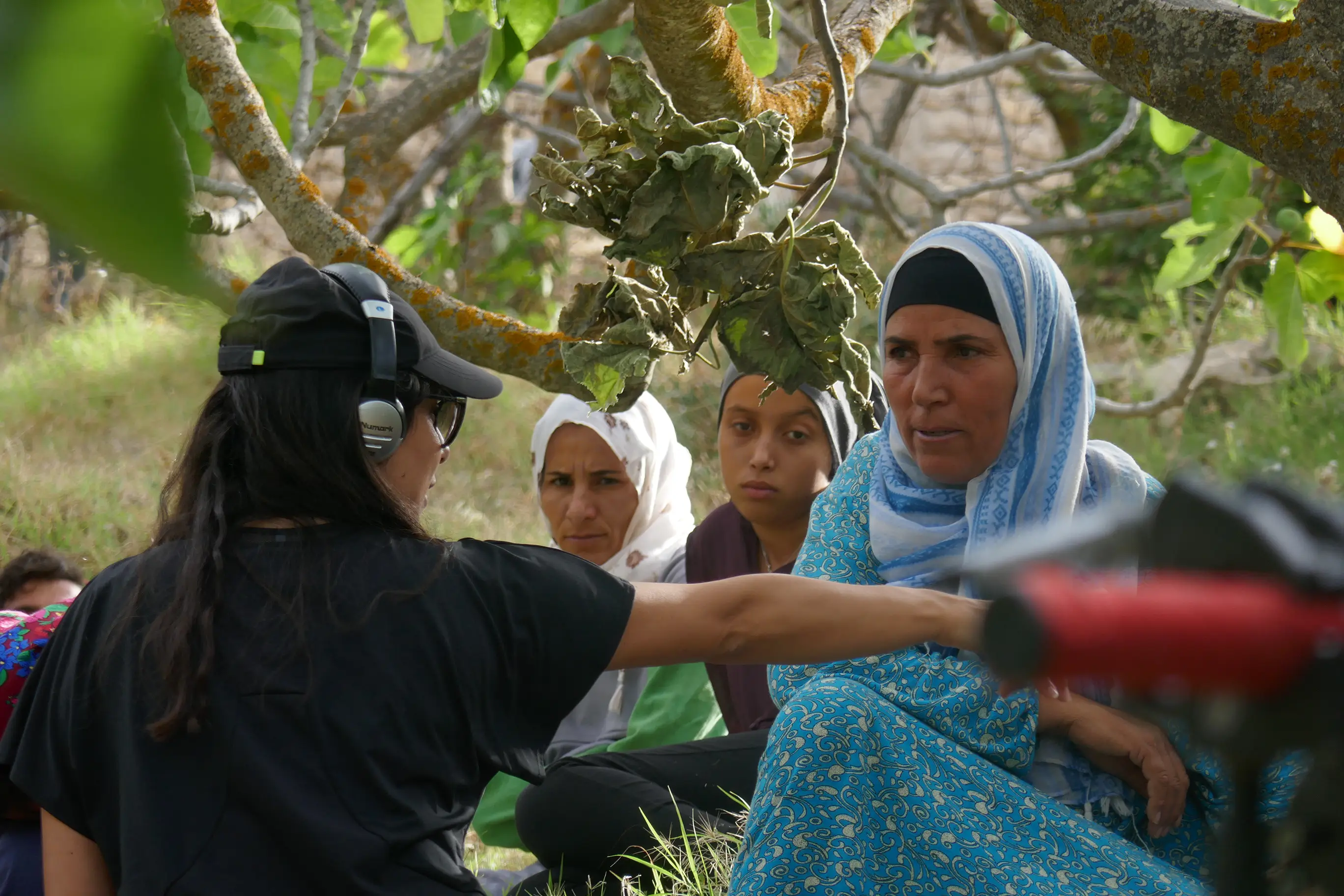
Leila: What did you discover about your family and Tunisia that you hadn't realized before?
Erige: I just think that it was a way of being. It was a way of lying, of pretending. But after I heard all the stories and people started to be free to express themself, I discovered many things about corruption, mentality, and society.
Leila: Lying was a form of survival in a way.
Erige: I mean, yes — the tendency of following what is secure for you, following the status quo. Fortunately, this has changed. I felt an energy of a young generation that had a lot of hopes and desires and dreams for the country. We had a dynamic — a very strong dynamic — of creativity on all kinds of levels.
Leila: How did that influence your filmmaking style — especially around the young people’s energy? It really does have a tenacity of spirit Tunisia that's galvanized by young people there, especially at that time.
Erige: Probably that's why I chose to shoot Under the Fig Trees with the angle of the younger generation. It's a fiction film, but it looks like a documentary. There are multiple individual stories happening in one day, with a collective destiny at the end of the day.
Leila: The actors are actually young people from that village. How did that work?
Erige: I'm originally from the area — which helps because I am the daughter of someone from the village. I’m not completely an outsider. I [held] auditions in the youth centers. It’s about access and trust first. When you build that, then you can do magical things and then you have to find talents. Then, I had to talk to the 16-17-year-olds — I had to talk to the parents, and have their authorization. For the woman, I had to explain that I would not do anything offensive for the community or for them. But that's the price you pay for working with non-professional actors in conservative societies. I used the idea of not showing too much or not doing so much in terms of physical things that could offend the parents or the community and used it as a sensual aspect to the film. It was amazing. One of the girls, the main character of the film, her father is an imam. He was very excited for her and he just wanted her to succeed and to do something in life, but to stay respectful. That's what he said. Cinema is a way to push boundaries, and that was a first step for them.
Leila: I wanted to ask you about your filmmaking collective. They’re so important, these groups. When you get into filmmaking, you probably don't realize that you inadvertently have to become an advocate for the industry and yourself in order to have more agency in it.
Erige: With female filmmakers from the Middle East and North Africa, including the diaspora, we created the collective called Rawiyat, which means “storytellers” in Arabic. The idea is for filmmakers to share their experiences and challenges at the first stage of their careers [and] to support them through mentorships and talks. We believe in championing independent voices, alternative narratives and new cinematographic languages beyond stereotypes, with the aim to shift power dynamics within the industry.
Leila: Well, I wish you all the luck with your next film and I look forward to watching it.


